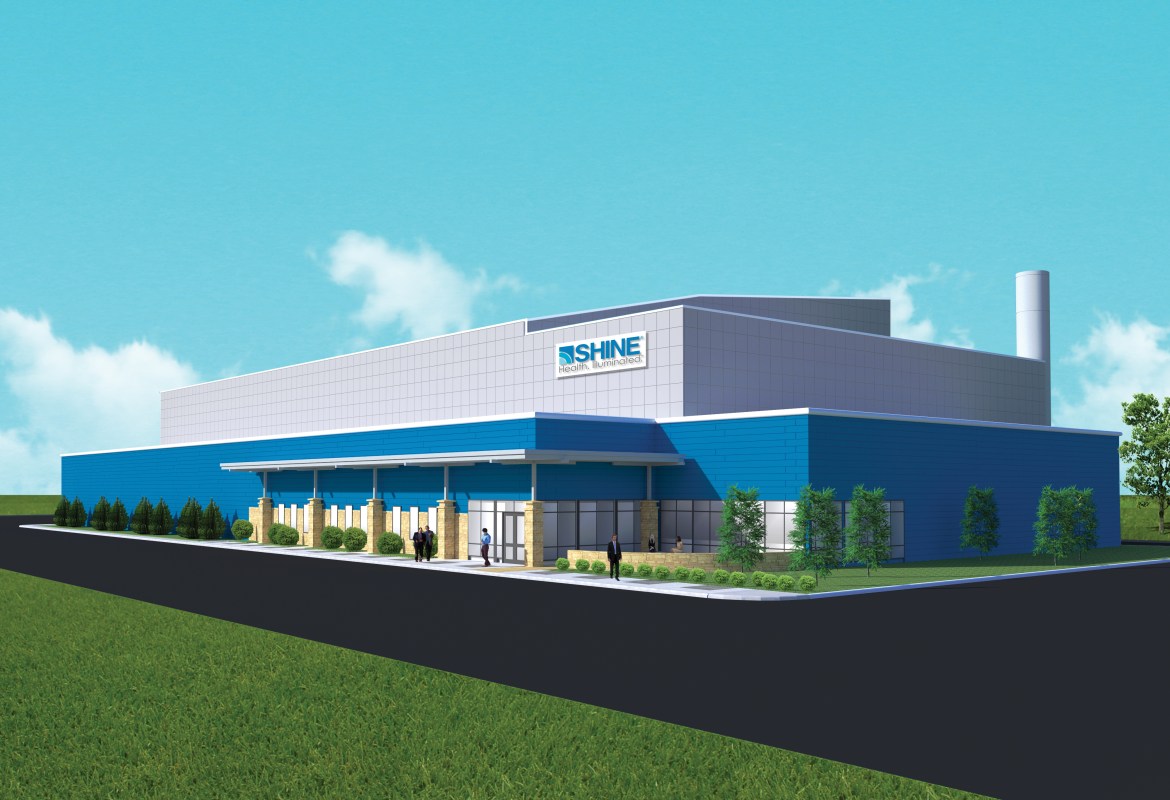Artist’s rendering of USNC spacecraft using EmberCore. (Image: DIU)
The Defense Innovation Unit (DIU), a Department of Defense organization focused on swiftly putting commercial technology to use in the U.S. military, has awarded contracts for two nuclear technologies—compact fusion and radioisotope heat—for spacecraft that could carry a high-power payload and freely maneuver in cislunar space. The objective is to accelerate ground and flight testing and launch a successful orbital prototype demonstration of each approach in 2027.
In 2021, the Fusarium wilt disease continued to spread in banana plantations across South America. (Photo: M.Dita/Biodiversity International, Colombia)
A lethal banana disease, known as the Fusarium wilt or Panama wilt, is spreading rapidly in South America and threatening global supplies of the Cavendish banana, the world’s most popular export variety. Working with experts in the Andean countries of Bolivia, Colombia, Ecuador, and Peru, the IAEA and the Food and Agriculture Organization of the United Nations (FAO) are using irradiation and nuclear-derived techniques to combat, manage, and prevent the spread of the disease. The IAEA describes the work in a December 24 news article.
(CLICK IMAGE TO ENLARGE) The researchers’ experimental layout is depicted here. In (b), the neutron chopper is depicted without the mesh guard shown in (d), a photograph of the experimental layout that includes the Cf-252 source tank at left. (Composite image: Joyce, et al., “Wireless information transfer with fast neutrons,” doi.org/10.1016/j.nima.2021.165946)
Swapping conventional electromagnetic radiation for fast neutrons, a team of research engineers at Lancaster University in the United Kingdom, working with the Jozef Stefan Institute of Slovenia, report that they have successfully transmitted digital information wirelessly using nuclear radiation. The researchers’ attempts to transmit words and numbers using standard ASCII code “were 100 percent successful,” according to a November 10 press release from Lancaster University. Their research will be published in an upcoming issue of Nuclear Instruments and Methods in Physics Research and is now available online.
Darlington nuclear power plant. (Photo: OPG)
The Canadian Nuclear Safety Commission (CNSC) has amended Ontario Power Generation’s (OPG) operating license for its Darlington nuclear power station near Clarington, Ontario, allowing the company to produce the medical radioisotope molybdenum-99 using Darlington’s Unit 2 CANDU reactor. OPG subsidiary Laurentis Energy Partners, in conjunction with BWXT Medical, is leading the program to produce Mo-99 at Darlington.
SHINE Technologies’ headquarters building in Janesville, Wis. (Photo: SHINE)
The Department of Energy’s National Nuclear Security Administration has issued a cooperative agreement worth $35 million to SHINE Technologies, based in Janesville, Wis., to support the commercial production of molybdenum-99, a critical isotope used in more than 40,000 medical procedures in the United States each day, including the diagnosis of heart disease and cancer.
A PET imaging machine. (Photo: Wikimedia Commons)
ARTMS, a Canadian producer of medical isotopes, announced that it has registered the cyclotron production of gallium-68 with the government of Canada, filing a Type 1 Master File with the Health Products & Food Branch of Health Canada. The Ga-68 radioisotope is used in nuclear medicine diagnostic procedures utilizing positron emission tomography (PET) imaging.
NorthStar’s RadioGenix system produces the medical radioisope Mo-99 without the use of uranium. (Photo: NorthStar)
NorthStar Medical Technologies of Beloit, Wis., will receive $37 million under two cooperative agreements with the National Nuclear Security Administration for the production of molybdenum-99 without the use of high-enriched uranium. Considered a critical medical radioisotope, Mo-99 is used in more than 40,000 medical procedures in the United States each day, including the diagnosis of heart disease and cancer.
First concrete pour for research reactor begins at Bolivian nuclear research center. (Photo: Rosatom)
Key facilities at a multipurpose nuclear research center in the high plains of Bolivia are nearing operation, and a ceremonial first concrete pour for the nuclear research reactor that will serve as the centerpiece of the project was held on July 26. Bolivian president Luis Arce attended the ceremony at the Center for Nuclear Technology Research and Development (CNTRD). Also attending were Kirill Komarov, first deputy director general for corporate development and international business at Rosatom (Russia’s state atomic energy agency), and authorities from the Ministry of Hydrocarbons and Energies and the Bolivian Nuclear Energy Agency (ABEN).
A rendering of the SHINE medical isotope production facility planned for construction in Veendam, the Netherlands. (Image: Shine)
SHINE Medical Technologies plans to locate its European medical isotope production facility in the Netherlands after a yearlong search and a review of more than 50 proposals from sites across Europe. The company announced on May 20 that construction at the site should begin in 2023 with commercial production starting in late 2025.













